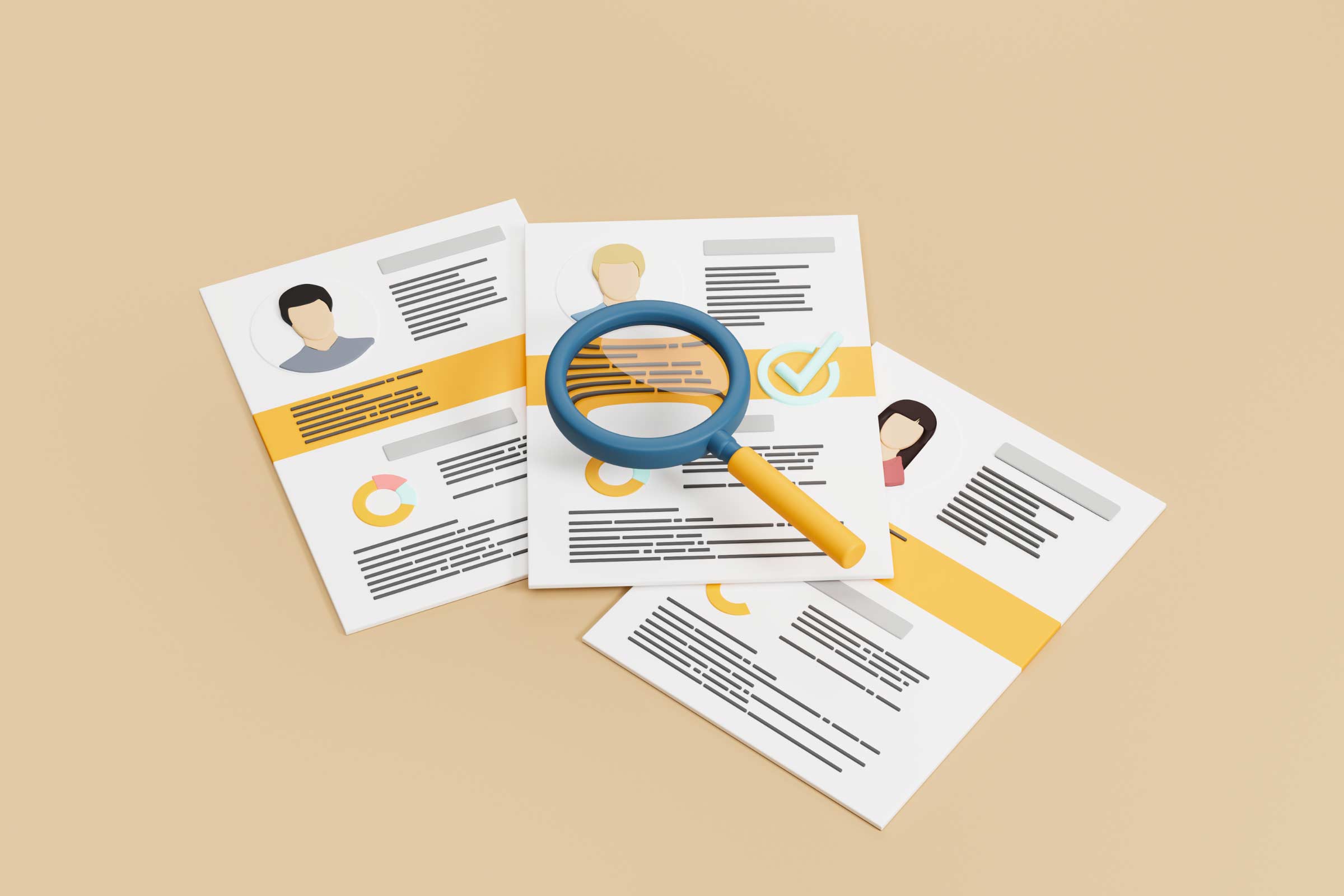Our Services
Bank Fraud & Scams
Getting To Know
What is Bank Fraud?
Even though banks are meant to be one of the most secure entities, there are many types of bank fraud and scams which people can fall victim to, resulting in them losing large sums of money. Bank fraud is a major problem which can cause serious financial loss for those affected. It is a serious crime and one which can take numerous different forms, from impersonation scams and identity theft to phishing scams and authorised payment fraud.
Understanding the different types of bank fraud can be the best instance in protecting yourself, or help you to identify the next steps should you fall victim to a bank scam.
There are many different types of bank fraud, but overall, bank fraud is a type of financial crime which involves scammers either fronting as or using financial institutes, such as banks and other similar services, for their own gain and to commit criminal activities. With bank scams, criminals can do things such as create false accounts, use false identities and manipulate bank records. They can also steal card and payment information. Bank fraud is a serious crime and can result in serious fines and penalties, or even imprisonment.
It is a huge problem for a number of financial institutions and it can have serious effects on customers, who can experience a loss in funds or the exposure of their confidential financial information. A number of institutions are taking steps to protect themselves and their customers against bank scams, however, we are finding that a lot of banks aren’t helping customers once they find out they have been the victim of a banking scam. New rules have recently been implemented to further help victims of banking fraud, but this isn’t always the case.
Further Information
Types of Bank Fraud
There are different types of bank scams and fraud, but all are designed to get you to part with your money or sensitive information.
Bank Transfer Scams+
Bank transfer scams are a type of bank fraud which can affect businesses and individuals and is where money is transferred to a scammer’s bank account. In order to trick victims into parting with their money, bank transfer scammers will attempt to impersonate a real person or business. Once they have gained the victim’s trust, they’ll ask them to transfer money in exchange for products or services, which they will never receive. This is the most common form of bank scam that we see, affecting a number of victims.
Debit Card Fraud+
Debit card fraud is where a scammer gets hold of your debit card number and, in some cases, your PIN, in order to make unauthorised purchases or to withdraw money from your account. Using online banking should help you to catch this early, as you will be able to spot any unusual payments or withdrawals.
Accounting Fraud+
Accounting fraud happens when a financial institution abuses its position of power, either by leaving out important information or by purposefully misrepresenting it. This type of bank scam can involve the manipulation of bank statements in a bank to make it look more profitable than in reality.
Cheque Kiting+
Cheque kiting is slowly and naturally phasing out as we become less reliant on cheques, however, it does still occur. Cheque kiting is a form of bank fraud where the scammer takes advantage of the gap in time between a cheque being cashed and cleared. The criminal will write a new cheque for an amount of money that they know isn’t in the account, to then deposit it into another account. When the cheque is accepted, the criminal will withdraw the funds from the account before the originally cashed cheque bounces due to there being a lack of funds. As well as bank fraud, this is also a type of forgery.
New Account Fraud+
Another common type of bank fraud is new account fraud. This can also be referred to as account creation fraud. It is a type of fraud which happens when a criminal opens a bank account with the sole intent of committing fraud using stolen identities. These identities may be stolen from legitimate banking customers through data breaches or phishing scams, but they can also create accounts using fake identities. When a new account is created, the criminal will then incur charges and fees in the other person’s name.
Our Action
Who is responsible for Bank Fraud?
Bank fraud is a serious offence and is a concern for the banks as well as their customers. It is a type of crime which causes financial loss to customers and banks alike, but unfortunately, often the responsibility for bank scams lies with the bank and customer. Although criminals carry out the offence, it is often down to weaknesses in security on either the bank or the customer’s part, which is where the confusion comes in when looking to reclaim funds lost through bank fraud. Banks are the ones responsible for ensuring that customer’s financial data is secure and they should have strong security measures in place to protect and warn customers against bank fraud.
Customers have a responsibility to protect their accounts from fraudulent activity, making sure to choose strong passwords. In the event of any suspicious activity being noted on the account, they should then report this. Other steps, such as using public wifi connections to access their bank accounts, should also be avoided. Both customers and banks have a responsibility to keep themselves protected against banking fraud, but we understand that isn’t always the case. If you have been the victim of banking fraud and your bank is refusing to reimburse you, get in touch with us as we may be able to help recover your funds.
Questions
Frequently asked questions
01.How can I prevent bank fraud?+
As there are many different types of bank fraud, the most important things you can do is keep your card safe, never share your PIN, monitor your transactions regularly and ensure your devices are updated with the latest cyber security software to reduce the risk of information being stolen.
If anyone asks for any personal or financial information from you, for example, you receive a phone call from someone claiming to work for your bank and they know some of your information, don’t give any more details to them. A bank will not call you out of the blue and ask for any details or request for you to move any money. In this case, hang up the phone and call your bank directly from the number on their website and do not call the number back. This is also the case with emails, you should be very careful when receiving emails about your finances and if you’re unsure about anything or suspect banking fraud, call your bank or go to a local branch.
You should also spend some time learning about common types of bank fraud, so you know how to identify a scam and avoid it at all costs. Some bank fraud scam emails are extremely advanced and sophisticated, with email addresses also looking legitimate, so knowing what to look out for, and not clicking on anything you’re unsure about, is important.
02.Can bank fraud happen with online banking?+
Unfortunately, bank fraud can occur with online banking. If someone has your bank details (whether from your physical card or they have been stolen by malicious data thefts), they can make online payments using your card. So, if you lose your card, it’s important that you freeze it as soon as you realise, even if you think you may have left it somewhere, as you can simply unfreeze it if you do find it.
Also, to prevent your banking data from being stolen as a form of banking fraud, you should not shop online or use your banking apps if using public Wi-Fi, as this could leave your card information exposed. There are all kinds of different ways that stolen data can be utilised, so make sure that you take precautions to prevent this. You should also regularly monitor your account activity and use strong passwords for all of your accounts to prevent bank fraud.
03.What to do if I think I’m a victim of bank fraud?+
The very first thing you should do if you think you’re a victim of bank fraud is to contact your bank. The payment may not have gone through and it could be stopped, so this should be the first step. Your bank may be able to help identify whether or not it is fraudulent, and if it does turn out to be legitimate, then they can advise you that it’s safe. No matter when you realise you think you may have been scammed, call your bank straight away.
The next thing you should do is change your banking passwords, to ensure that if someone does have your data and has used it for bank fraud, you’re doing everything you can to prevent them from doing further damage.
After this, you should report the fraud to the authorities. Fraud offences are investigated by the police and they may have useful information based on what you tell them relating to who may be scamming you.
If your bank is unable to retrieve the money, you should contact us at WRS, as we have experience in helping to recover money lost through banking fraud. Get in touch with us to speak to one of our UK-based lawyers.
04.What are the most common types of bank fraud?+
One of the most common types of banking fraud is bank transfer fraud, where a criminal will persuade someone to transfer money to their bank account. They can pose as a number of trusted people, for example, they may have stolen information about you (people are often unaware data has been stolen) and utilise that to persuade you to move some of your money from one account to a “new account”.
It’s also increasingly common for scammers to text people in order to
emotionally manipulate them into sending money, for example by saying
“Hi mum, I’m texting you off my friend’s phone, I’ve lost mine and need
a favour it’s urgent x”, before then persuading them to transfer money
for anything from petrol to a car payment. This is another type of bank
fraud that is highly manipulative and has lost people a significant
amount of money.
These are just a few examples of bank fraud, so the best piece of advice we can give is that if anything ever doesn’t feel right, make sure to contact your bank before sending anyone any money.
05.Is my bank responsible if I lose money through bank fraud?+
If money is lost through bank fraud, it’s the responsibility of the bank or the customer. Even though bank fraud is a criminal offence and will likely be investigated by the police, as it is caused by either oversight from the bank or the customer, then the police or government are not responsible for reimbursing you.
Examples of where banks may be liable for bank fraud is if there are weaknesses in security or if financial data has not been properly protected. This could result in a data leak, where money can be stolen. With mainstream banks, they have extremely sophisticated data protection systems, so this isn’t very common. However, in the case of a data leak, the bank would usually be responsible for reimbursing any lost funds.
Unfortunately, when it comes to banking fraud, usually the responsibility is on the customer. This could be because they hadn’t chosen strong passwords or recently changed their password, they’ve used public Wi-Fi to make transactions, they’ve lost a card or they’ve fallen victim to advanced scams where they’ve been convinced to transfer money or give away sensitive data. No matter the circumstance, make sure to quickly call your bank if you think you’ve been a victim of bank fraud as the first step, change your passwords and then if you are unable to recover the money through the bank, contact us at WRS.

Our Support
Have you been the victim of Bank Fraud?
Banking fraud is a serious problem and one which is affecting a number of our clients, with serious financial and emotional consequences. If you believe that you have been a victim of bank fraud, we recommend getting in touch with us with as much information as possible and arranging a free consultation with our team of UK-based lawyers.
Victim of a Scam?
Get in touch
We understand that being the victim of bank fraud can be tough to handle, but we hope that our support, action and guidance can enable you to recover lost funds and regain a sense of confidence and security in making trades and investments online.















